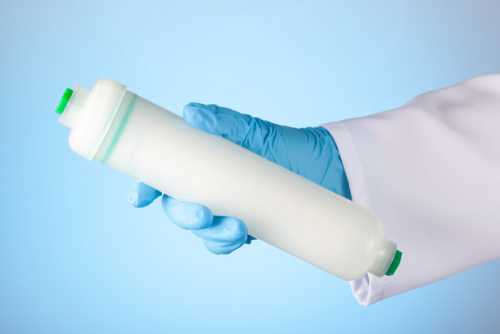
What Is UF In Water Purifier And How It Keeps You Safe

By Urban Company
3 min read
Feb 16, 2024
Everything you need to know about ultrafiltration (UF) in water purifiers but didn’t know whom to ask Even though all good water purifiers do exactly what they are ...

Everything you need to know about ultrafiltration (UF) in
water purifiersbut didn’t know whom to ask
Even though all good water purifiers do exactly what they are built to do – to purify water – they use different techniques to do so. UF is one such technique that purifies your water.
But what is UF in water purifier and how does it keep you safe?
UF is short for ultrafiltration and is a filtration process that uses a semi-permeable membrane to remove contaminants and impurities. It is often used in residential or small-scale commercial water purification systems. From laying out the process of UF in water purifiers to highlighting its benefits, here’s everything you need to know about ultrafiltration:
Ultrafiltration: How does UF work in water purifiers?
The process of ultrafiltration in water purifiers happens in four different stages:
1. Semipermeable Membrane
2. Pressure Differential
3. Filtration Process
4. Clean Water Output
In the early stage of UF in water purifiers, contaminants are blocked using a semipermeable membrane. This membrane consists of pores that aren’t bigger than 0.1 micrometres. This allows the membrane to block even the smallest contaminants ensuring the water that passes through is clean. Now, for the membrane to successfully filter out contaminants, water must run through it at a high pressure. The pressure will then push the water through the membrane allowing the filtration to happen. This pressure differential and the filtration process happen to be the second and third stages respectively. Finally, cleaner water is collected on the other side of the membrane, in the final stage of ultrafiltration in water purifiers.
What are the benefits of UF in water purifiers?
1. It removes contaminants without using chemicals
2. It improves the water’s taste and clarity
3. It is reliable and low-maintenance
4. It is suitable for different water sources
UF is the preferred method of water purifying in households and commercial spaces because it is efficient and robust. It significantly improves water quality and doesn’t require chemicals or extensive maintenance. Here are some of the benefits of having UF in water purifiers:
It removes contaminants without using chemicals
UF in water purifiers helps remove a wide range of contaminants, including bacteria, viruses, sediment particles, and other dissolved solids without using any added chemicals. It does so by solely depending on the membrane for its effective filtration process.
It improves the water’s taste and clarity
Ultrafiltration also removes impurities that result in giving water poor taste and make it translucent. As a result, water that passes through UF filter is clearer and tastes better.
It is reliable and low-maintenance
One of the biggest advantages of UF in water purifiers is its reliability. Apart from the semipermeable membrane, which requires only periodic maintenance and cleaning and occasional replacement, ultrafiltration water purifiers are robust and can help clean your water supply for a long time.
It is suitable for different water sources
UF water purifying systems can effectively treat water from different sources, including from taps, borewells and surface water, making the filter highly dependent and straightforward.
Which is better? Reverse Osmosis or Ultrafiltration?
Ultrafiltration and reverse osmosis are considered to be two of the most effective water purification methods that are used in households. But what is the difference between RO and UF water purifiers?
Preservation of minerals
UF water purifiers are considered less aggressive filtration systems mainly because they effectively preserve minerals. While Ultrafiltration allows minerals such as calcium and magnesium to pass through its membrane while blocking contaminants and minerals, reverse osmosis prevents (even the beneficial) minerals from passing through. Water filtered through RO purifiers can thus taste less palatable due to its demineralised state, while UF-filtered water preserves the taste and has potential health benefits.
Reduced wastewater production
UF water purifiers produce significantly less wastewater compared to
RO purifiers. This makes ultrafiltration devices a more environment-friendly choice, particularly in critical water conservation regions.
Energy consumption
UF water purifiers consume less energy compared to reverse osmosis. This lower energy consumption can translate into reduced operation costs and a smaller carbon footprint.
Filtration rate
Ultrafiltration water purifying systems are considered to filter water at a much more rapid pace as compared to reverse osmosis. This can be particularly useful in applications requiring a high water flow.



